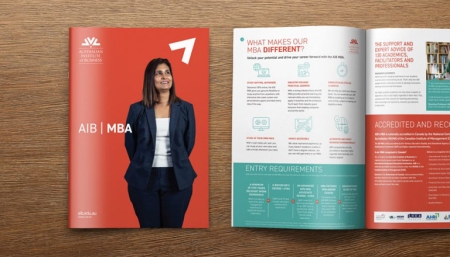Top 5 tips for effective teamwork

Any person is able to work in a team, but effective teamwork is the true key to productivity. A strong team will be greater than the sum of its parts. Teamwork is important in any workplace, this becomes clear when comparing a dysfunctional team to a team which works well together. The results indicate that there are several factors that influence the effectiveness of any team. What are these factors? Read the tips below to find out.
5 Tips for effective teamwork
1. Appoint a strong leader
A team has no direction without an elected leader. It is vital that this person is efficient and switched on when it comes to delegating tasks to the appropriate team members.
Leaders of effective teams will also prioritise team goals over individual goals, ensuring the whole team is committed to getting the job done. Finally, they must be capable of showing direction and increasing the morale of the team.
2. Clarify all responsibilities
From the moment the team is formed, particular attention must be paid to assigning direct responsibilities to each team member. If clear parameters are set from the beginning, there will be no overlaps of authority.
This is an important step to make before delving into the project so that everyone is clear and on the same page. If everyone is clear on what they are responsible for producing, it helps prevent situations such as staff overlapping on tasks and the less desirable tasks being avoided. Effective teamwork can be derailed as much by having too many people responsible for the same thing as it can be by having tasks that no one is responsible for.
3. Set common goals
Each team will be comprised of people with diverse backgrounds and skillsets. It is therefore important to set common goals in which the team is working towards so that the focus always remains on the finished product.
Each team member must understand that personal goals must be set aside and team goals must remain a focus throughout the project. As the well-known saying goes, ‘There is no I in team’. If conflicts arise, refer back to these original goals and make decisions with a primary focus on them.
4. Foster open communication
Encouraging team members to be forthcoming with their ideas and concerns is very important for the success of the team.
When team members feel that they can freely contribute ideas, there is more scope for creativity and innovation. It is also important to establish two-way communication of information between both the members within the team, as well as between team members and their manager. This ensures that everyone is always appropriately informed and no topics of conversation are avoided.
Team members should also feel comfortable to address concerns and issues with the team. When different points of view exist, being able to resolve conflict positively is enormously productive, and a hallmark of effective teams.
5. Be willing to help others
In a team project, although you are assigned personal tasks you must remember that your overall goal is to contribute to completing the project. This, therefore, means that if you have finished your workload, you must be willing to help out where needed. This may mean contributing to tasks that are perhaps below your level or outside your usual responsibilities, but the overall goal must be kept in mind.
Lead your team with confidence
If you are seeking to develop your top-level communication, management and business skills, check out the Fast-Track online MBA – a world-class master of business administration degree built for busy professionals who want to accelerate their career.
What do you think?
Do you have any other tips for effective teamwork that you would like to suggest? I welcome your thoughts or questions in our comment box below.
This article was written by Laura Hutton on behalf of the Australian Institute of Business. All opinions are that of the writer and do not necessarily reflect the opinion of AIB.
No matter what stage you are at in your career, you should never stop learning, developing and seeking feedback. One of the best ways to do that is to work directly with your manager – the person who works closely with you on a day-to-day basis.
Whether or not your company has decided to implement formal career development meetings with managers, this is a practice that you should be undertaking at least once per quarter. Making the time to talk with your manager about your performance and career growth can pay dividends for you both.
Five steps for a valuable career development meeting
Talking to your boss about your career progression shouldn’t be difficult – or daunting. Get the most out of every meeting you have with your manager about your career development by taking the following five steps.
1. Share your goals
Tell your manager what you’re working towards and aspiring to work on to give them a deeper sense of your productivity and where you want to go. Share the results that you’re seeing so far, and update them on what your ultimate goal is. If your manager doesn’t know what your “north star” is, how can they help you get there?
Is your goal to execute a big project beyond expectations or get promoted in the next 6 months? Sharing this information with your manager will give them a clear sense of what you want your path to be so that they can help you get there.
2. Describe your achievements so far
Once you’ve communicated your ultimate goals to your manager, describe to them where you are relative to those goals. This part of the conversation shouldn’t just be about highlighting your strengths and successes. You should use this section of the meeting to outline specifically what you’ve done so far to work towards those particular goals.
Doing so will help you both understand how what you’ve been doing aligns to your goals and how far towards reaching them you already are. This will help your manager to engage with you and take initiative to help you get there. It may also shed light on what still needs to be done.
3. Ask for input and advice
The point of the meeting isn’t to show off, it’s to move forward, and to do so faster than you would on your own.
Come into the meeting prepared with several questions that would direct your manager to give you advice and take on a mentorship role. The goal is to discuss other matters related to your career development, ask questions and get direction. This is a good time to ask what they consider to be your strengths and weaknesses. Ask if there are things you haven’t demonstrated yet that they’re looking for, and what you need to learn to do well.
Your manager should be able to help you develop a set of action items – or smaller goals – that will move you forwards towards your bigger goals. There’s also a very good chance that your manager may be able to direct you to some additional resources or people who can help with your development.
4. Identify and commit to next steps
After the meeting is over, go back through your notes on the conversation and formulate the next steps – there should be clear action items for both yourself and your manager. Share the action items with your manager and make a commitment in writing about when they should be done.
Also make sure to record your notes in a way that you can use them as a tool to inform your next meeting, to follow up on the items you discussed.
5. Continue the conversation
Talking to your manager about your career goals and progression should not be a one-time-only deal. Make sure you’re scheduling career development meetings regularly with your manager. The frequency may depend on the size of your goals and the nature of your action items but, in general, aiming for a meeting once every quarter that is solely dedicated to discussing your career is a good idea.
Discussing your career development with your manager is just the first step
Career development meetings truly can be valuable and productive when planned and executed correctly. You just have to take the steps to make them that way, so don’t underestimate their value.
As the saying goes, if you want to be in the top 5%, you must do something different than the other 95%. Actively planning and engaging in career development meetings help high achievers move forward in their career sooner. Above all, remember that any good manager will be on your side! Managers want to see their teams succeed, and it’s likely that your manager will be supportive of your career development goals.
This article was written by Jelena Milutinovic on behalf of the Australian Institute of Business. All opinions are that of the writer and do not necessarily reflect the opinion of AIB. The following sources were used to compile this article: Forbes and Forbes.






